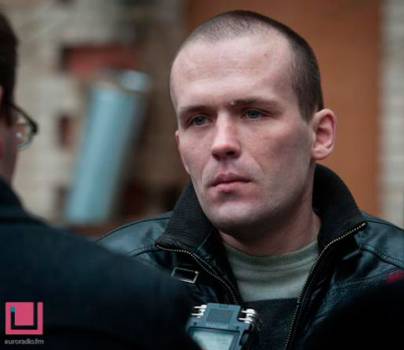Vasil Parfiankou is kept in Zhodzina penitentiary
Former political prisoner Vasil Parfiankou is kept in the transit point of Zhodzina penitentiary, from which he will be transferred to Horki penitentiary.
He wrote about it in a letter to public activist and film producer Volha Mikalaichyk.
“He wrote that he was taken to Zhodzina and the conditions are very hard there. The prisoners are prohibited to sit on the bunks even during the daytime, and have to walk all day after making their beds. However, his main comlaint is the real information hunder. There is no TV set and he receives no newspapers. He has no money on his acccount, as his 500,000 rubles still haven't been returned by the activity therapy center in Svetlahorsk, that's why he cannot buy any postcards or envelopes to write anyone,” said V. Mikalaichyk.
Vasil Parfiankou wrote a letter in Belarusian and congratulated all friends and supporters, wishing them a happy New Year, said Volha Mikalaichyk. According to the activist, Vasil still does not know when his appeal against the verdict, by which he was found guilty of violating the rules of preventive supervision and sent to a high-security penitentiary for another year, will be considered. He was just told he would be sent to the penitentiary in Horki in about 1,5 months.
On 5 December the Pershamaiski District Court of Minsk sentenced Vasil Partiankou to one year in a high-security penitentiary for violation of the rules of preventive supervision, imposed on him in the beginning of the year.
In 2011 Mr. Parfinakou was sentenced to 4 years in prison for participating in the protest rally against the rigged presidential elections on 19 December 2010. A few months later he was released under a pardon decree signed by Lukashenka. Following the detentions for participation in actions of solidarity with political prisoners, in the beginning of 2012 preventive supervision was established over him.
Penitentiary No. 9 in Horki stands out among similar institutions in Belarus. Former political prisoner, Chairman of the "Young Front" Zmitser Dashkevich considers it one of the most brutal and notes an especially negative attitude to political prisoners in it.


















